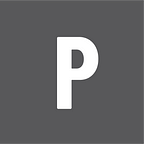E-Pluribus | Apr. 12, 2021
Here is a round up of the latest and best writing and musings on the rise of illiberalism in the public discourse:
David French: A Surprising Opinion From Justice Thomas May Signal an Ominous Shift on Free Speech
Given the liberal (not the classical kind) furor that accompanied the appointment of Clarence Thomas to the Supreme Court almost thirty years ago and the frequency with which his opinions annoy and infuriate that same ideological crowd, it’s somewhat jarring to read conservative David French’s criticism (“unsettling”, “improper”, “deeply problematic”) of Thomas’s recent comments and their implications for freedom of speech.
When Major League Baseball pulls its all-star game from Georgia to protest Georgia’s voting law, that’s corporate free speech. When Hobby Lobby resists the Obamacare contraceptive mandate, that’s corporate religious freedom. Newspaper editorials are corporate free speech. So are union endorsements. So are church statements of faith. So are party platforms. In many ways, the American marketplace of ideas can’t properly function without corporate free speech. It represents a key way in which Americans organize and express ideas.
Make no mistake, social media moderation decisions are free speech. Even the way in which social media companies design algorithms to feature certain kinds of content at the expense of others is a form of free speech. They have created communities that reflect their own private visions of what a marketplace of ideas should look like and how it should function, and the result is a series of apps and websites that have different cultures, different customer bases, and different moderation rules.
And that’s what makes Thomas’s opinion so constitutionally unsettling. It is not the job of a Supreme Court justice to opine on matters of public policy, but that’s exactly what he did. He described what he called the “problem” of “private, concentrated control over online content and platforms available to the public” then went on to raise “two legal doctrines” that might “limit the right of a private company to exclude.”
Read it all here at Time.
The Harvard Crimson, Natalie L. Kahn: ‘An Endangered Species’: The Scarcity of Harvard’s Conservative Faculty
The scarcity of conservatives on many prestigious college and universities is practically a cliche, but even so a new Harvard University survey may manage to raise some eyebrows for its stark results. But far more disturbing than the numbers is the apparent close-minded attitude held by too many in the overwhelming liberal majority in the very type of institution that is supposed to be welcoming of different ideas to better challenge the developing minds of their students.
Mansfield [a conservative] said he has had “all kinds of trouble” with some of his colleagues.
“They believe they are scientist[s] — scientists are objective, it doesn’t matter what party you belong to,” he said. “And the fact that all of them belong to the Democratic Party is a mere accident of no interest or importance.”
But while tenured professors might be more comfortable sharing their political views with impunity, Mankiw acknowledged that tenure-track professors likely do not share the same level of comfort.
“If I were a right-of-center untenured professor, I probably would not advertise my views,” Mankiw said. “You should recognize you’re in the minority, and not everybody’s going to judge you with open-mindedness.”
[…]
Mansfield argued that the only path to balance the current disparity must be a concerted effort by the administration to hire more conservative scholars in inherently political fields.
“What we need is more conservative faculty appointments,” Mansfield said. “There hasn’t been a conservative appointed as a Harvard faculty for the last 10 years, as far as I know.”
Read it all here.
Cathy Young: Dissidents, Crackpots, and Bad Allies
At Substack newcomer Arc Digital, Cathy Young offers a warning that not all apparent allies in the fight against “wokeness” should be automatically welcomed into the fold. Discernment is need to distinguish a merely cantankerous from a crackpot or an out-of-the-box conservative from a conspiracist.
[W]hile dissent from mainstream culture is often good and necessary, there is but a short journey from dissident to knee-jerk contrarian to crank to crackpot. The temptation is understandable: if you question conventional narratives on various social and political issues, why not “question authority” on epidemics and elections, too?
[…]
[C]rackpots do not make good allies.
I’ve lost count of the times people on Twitter have said that “we” (the “anti-woke”) should band together instead of fighting over differences, that “we” need all the people we can get, etc. I’m all for joining forces with people with whom I have disagreements. But some things, like not peddling deranged conspiracy theories, are non-negotiable. If “we” need everyone we can get in “our” corner, then why not Molyneux? Why not Alex Jones? They’re pretty “anti-woke,” too.
[…]
No less important, a visible ally who is peddling authoritarianism, demagoguery, and conspiratorial derangement can only discredit the effort. Yes, it’s unfair that the left is not held accountable for its cranks, haters, and crazies while some are already invoking Lindsay as proof that the “war on wokeness” was always a bad cause. (He’s nothing of the sort, of course — no more than Navrozov’s crackpottery proved anti-Communism was a paranoid delusion.) But fair or unfair, at this point, it’s impossible to cite Lindsay as a source of valid analysis without alienating anyone who isn’t already hardcore “anti-woke.” Whatever good insights he may sometimes have, he’s primarily useful at this point as a cautionary tale.
Read the whole thing.
Around Twitter
Will CEOs become the good guys now?
First 60 Minutes, now Youtube. Florida governor Ron DeSantis continues to be a media lightning rod.
Redefining words for political reasons continues:
The Florida legislature wants to track the ideological diversity of the state’s public college and university faculty.
